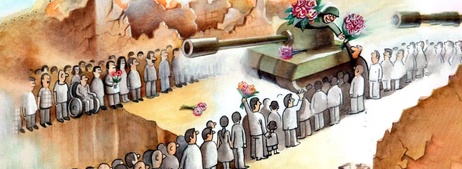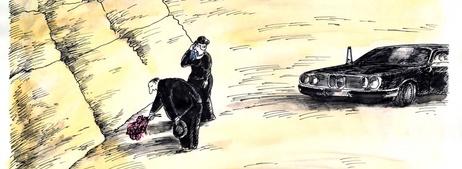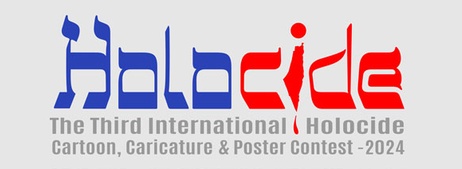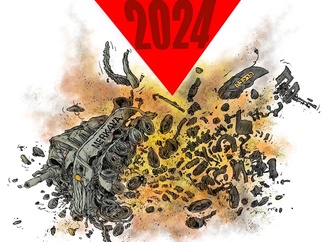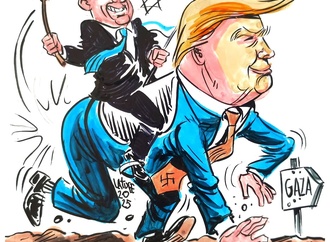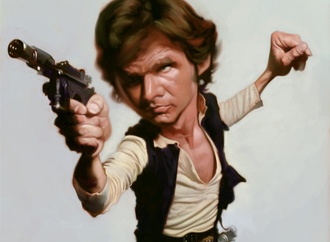Symbolic Analysis of Sergei Tunin's Deer Cartoon
Central Theme: Sergei Tunin's deer cartoon, with its powerful and symbolic imagery, explores the concept of losing one's identity and personal values when faced with life's challenges and hardships.
Key Elements and Their Symbolism:
The Deer: The deer is traditionally a symbol of beauty, freedom, and nobility. However, in this cartoon, the deer is depicted as wounded and helpless. This signifies the loss of its grandeur and majesty.
The Antlers: Antlers symbolize power, pride, and the deer's identity. Yet, in the cartoon, the deer is forced to sell parts of its antlers. This symbolizes the loss of identity and inner values.
Overall Interpretation:
Symbolically, this cartoon illustrates how individuals, when faced with difficult circumstances, may be compelled to sacrifice a part of their existence, identity, and values. By selling its antlers, the deer not only loses its beauty and strength but also a part of its very being. This image can serve as a warning against excessive sacrifice and the loss of one's true self.
Social and Psychological Dimensions:
This cartoon carries deep social and psychological dimensions. It can be seen as a social critique of societies that force individuals to sacrifice their values and identities for survival. Moreover, the cartoon touches upon psychological themes such as self-esteem, identity, and the sense of self-worth.
Central Message:
The central message of the cartoon is that preserving one's identity and values, even in difficult circumstances, is of paramount importance. Although we may sometimes be forced to make tough decisions, we should not let these decisions come at the cost of losing our true selves.
Questions for Reflection:
To what extent are you willing to sacrifice your existence, values, and identity for survival?
What role does society play in preserving or destroying an individual's identity?
How can we stay true to our identity and values during challenging times?
Through simple and symbolic language, this cartoon raises profound questions about human nature and our place in society.
Analysis by Massoud Shojai Tabatabai
728 x 90
Symbolic Analysis of Sergei Tunin's Deer Cartoon
- In Article
- Thu, 22 Aug 2024 17:13:06 +0330
- By Irancartoon
- 1007 Views
- 5 Tags
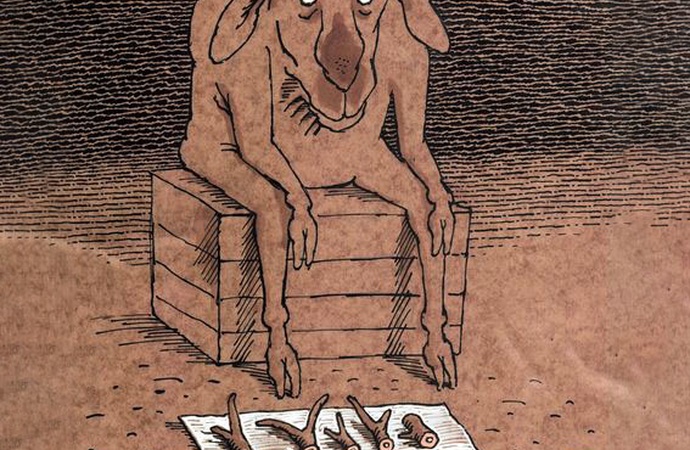
Symbolic Analysis of Sergei Tunin's Deer Cartoon
Latest Articles
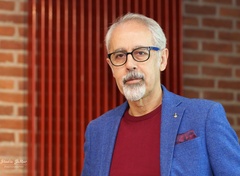
In Memory of Musa Güm…
- ARTICLE
- Sat, 5 Apr 2025 18:10:20 +0330

A Key Technique in Id…
- ARTICLE
- Sun, 15 Sep 2024 12:28:40 +0330
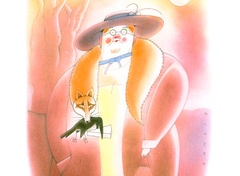
Analysis of the Carto…
- ARTICLE
- Wed, 4 Sep 2024 14:19:58 +0330
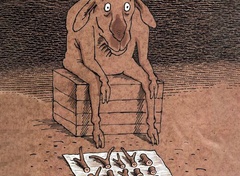
Symbolic Analysis of …
- ARTICLE
- Thu, 22 Aug 2024 17:13:06 +0330
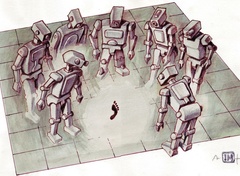
Analyzing the Cartoon…
- ARTICLE
- Wed, 21 Aug 2024 17:36:56 +0330

Ziraldo, the legendar…
- ARTICLE
- Sun, 7 Apr 2024 16:51:30 +0330

History of the origin…
- ARTICLE
- Sat, 30 Mar 2024 15:08:58 +0330

History of the origin…
- ARTICLE
- Sun, 9 Aug 2020 19:47:44 +0430
Upcoming Contests
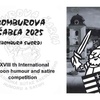
XXVIIIth International Cartoon Humour and Sa…
- DEADLINE
- Thu, 24 Apr 2025 22:00:00 +0330
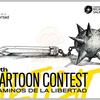
10th International Cartoon Contest "Paths of…
- DEADLINE
- Wed, 30 Apr 2025 21:00:00 +0330
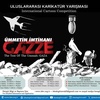
International Cartoon Contest Gaza: The Umma…
- DEADLINE
- Fri, 2 May 2025 22:00:00 +0330
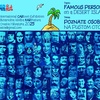
17th OSCARfest Croatia - 2025
- DEADLINE
- Sat, 10 May 2025 22:00:00 +0330

33rd Biennale Internazionale dell’Umorismo n…
- DEADLINE
- Mon, 12 May 2025 22:00:00 +0330

International Cartoon Contest: “Caricaturist…
- DEADLINE
- Thu, 15 May 2025 21:00:00 +0330

14th International Cartoon Contest 2025 – Ky…
- DEADLINE
- Thu, 15 May 2025 22:00:00 +0330
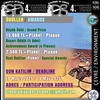
DIOGENES OF SINOPE 4TH INTERNATIONAL CARTOON…
- DEADLINE
- Mon, 19 May 2025 22:00:00 +0330
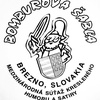
28th International Cartoon Humour and Satire…
- DEADLINE
- Thu, 29 May 2025 22:00:00 +0330
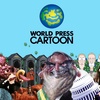
World Press Cartoon Oeiras 2025 – Internatio…
- DEADLINE
- Sat, 31 May 2025 22:00:00 +0330
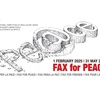
29th edition of the international Fax For Pe…
- DEADLINE
- Sat, 31 May 2025 22:00:00 +0330
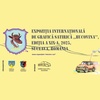
19th International Exhibition of Satirical G…
- DEADLINE
- Sat, 31 May 2025 22:00:00 +0330

57th WORLD GALLERY of CARTOONS Skopje 2025
- DEADLINE
- Sat, 31 May 2025 22:00:00 +0330
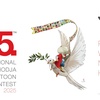
45th Nasreddin Hodja International Cartoon C…
- DEADLINE
- Sun, 1 Jun 2025 22:00:00 +0330
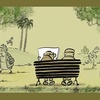
XXXII International Exhibition of the Arts o…
- DEADLINE
- Sun, 1 Jun 2025 22:00:00 +0330
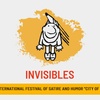
XXXIII International Satire and Humor Festiv…
- DEADLINE
- Sun, 1 Jun 2025 22:00:00 +0330
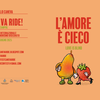
12th Edition of Caneva Ride, Italy 2025
- DEADLINE
- Sun, 15 Jun 2025 22:00:00 +0330
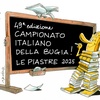
Italian Championship of Lies – 49th Edition
- DEADLINE
- Wed, 25 Jun 2025 22:00:00 +0330
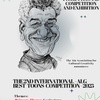
The 2nd International Cartoon Competition in…
- DEADLINE
- Mon, 30 Jun 2025 21:00:00 +0330
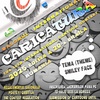
20th International Cartoon Contest – Brăila,…
- DEADLINE
- Thu, 10 Jul 2025 22:00:00 +0330
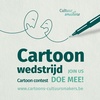
International Cartoon Contest Cultuursmakers…
- DEADLINE
- Thu, 31 Jul 2025 22:00:00 +0330
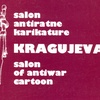
23th Salon of Antiwar Cartoon 2025 , Kraguje…
- DEADLINE
- Fri, 15 Aug 2025 22:00:00 +0330
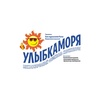
the X International Festival “SMILE OF THE S…
- DEADLINE
- Fri, 15 Aug 2025 22:00:00 +0330
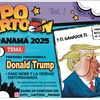
First International Caricature Festival – Ex…
- DEADLINE
- Tue, 19 Aug 2025 21:00:00 +0330
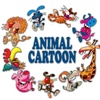
10th INTERNATIONAL CONTEST “ANIMALCARTOON 20…
- DEADLINE
- Mon, 1 Sep 2025 22:00:00 +0330
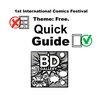
1st International Comics Festival- Portugal …
- DEADLINE
- Wed, 31 Dec 2025 22:00:00 +0330
Artists
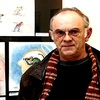
Milenko Kosano…
ARTIST

Florian Doru C…
ARTIST
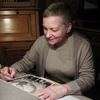
Izabela Kowals…
ARTIST

Dimitrios Geor…
ARTIST
Latest Galleries
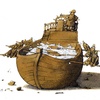
Gallery of the Best World Cartoon-Part …
- GALLERY
- Wed, 16 Apr 2025 12:11:25 +0330
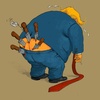
Gallery of the Best World Cartoon-Part …
- GALLERY
- Tue, 15 Apr 2025 11:54:36 +0330

Gallery of the Best World Cartoon-Part …
- GALLERY
- Mon, 7 Apr 2025 17:11:18 +0330

Gallery of Cartoon by Musa Gumus RIP (1…
- GALLERY
- Sat, 5 Apr 2025 17:31:03 +0330
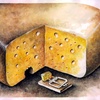
Gallery of the Best World Cartoon-Part …
- GALLERY
- Wed, 2 Apr 2025 11:16:04 +0330
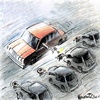
Gallery of the Best World Cartoon-Part …
- GALLERY
- Tue, 1 Apr 2025 20:10:56 +0330
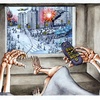
Gallery of the Best World Cartoon-Part …
- GALLERY
- Mon, 31 Mar 2025 14:52:44 +0330
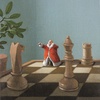
Gallery of the Best World Cartoon-Part …
- GALLERY
- Thu, 27 Mar 2025 18:16:50 +0330
Latest Videos
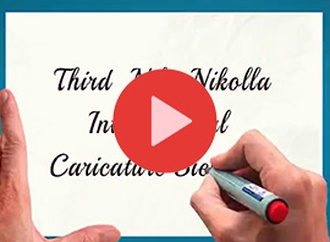
3rd Niko Nikolla International Cartoon … 3464
- VIDEO
- Sun, 26 May 2024 10:57:03 +0330
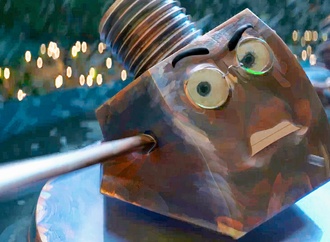
THE HISTORICAL BOLT 3650
- VIDEO
- Tue, 21 May 2024 13:40:59 +0330
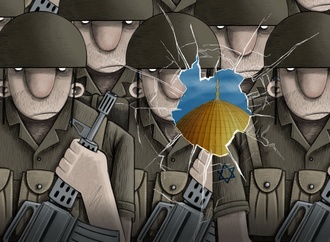
Israel is nothing - Cartoon by Jaber As… 7451
- VIDEO
- Sat, 13 May 2023 17:01:38 +0330
Cartoonists Network
- Aan Adıjaya
- Aaron Tilley *
- Aatefeh Madani *
- Abbas Ahmadi *
- Abbas Goodarzi
- Abbas Naseri
- Abdelhamid Aroussi
- Abdou Dahdouh
- AbdulAmir E Al Haiky *
- Abdul Arif
- Abdulkarim Abdulkarim
- Abdulkarim Baysel *
- Abedin Mohammadi *
- Abel Joachim Crayon *
- Abolghasem Tahanian *
- Adán Iglesias Toledo
- Adriana Masquera
- AFA Gallery 2
- Agim Krasniqi
- Agim Sulaj
- Ahmad Abdollahinia *
- Ahmad Arabani
- Ahmad Khalil
- Ahmad Rahma *
- Ahmad Reza ' Sohrabi *
- Ahmed A Jahaf *
- Ahmed Samir Farid
- Ahmet Altay
- Ahmet Öztürklevent
- Aiytoo Urvatul Vusqa
- Ajubel *
- Akbar Torabpour *
- Akira Kusaka *
- Alan Doyle *
- Alberto Jerez
- Alberto Peixoto 2
- Aleksandr Zudin
- Alen Lauzán
- Alexander Dubovsky
- Alexander Kaminsky
- Alexander Sergeev
- Alexander Shmidt *
- Alexander Shmıdt
- Alexander Strokov
- Alexander Yakovlev
- Alexey Merinov Merinov *
- Alfredo Martirena Hernandez
- Alfredo Sábat *
- Ali Ahangar *
- Ali Al Sumaikh
- Ali Al Sumaikh *
- Ali Faridradpour *
- Ali Ghanaat *
- Ali Hashemi Shahraki *
- Ali Jahanshahi
- Ali Khalil *
- Ali Mandalawi
- Ali Merikhi *
- Ali Miraee
- Ali Mivenejad *
- Ali Paknahad *
- Ali Qahtan
- Ali Radmand *
- Ali Rastroo *
- Alireza Bagheri *
- Alireza Farsad *
- Alireza Karimi Moghaddam *
- Alireza Pakdel
- Alireza Zakeri *
- Ali Ronaghian *
- Ali Shafei
- Aliyeh Mazaheri *
- All Van Gogh 2
- Altan Ozeskici *
- American Caricature *
- Amin aghaei *
- Amin Ghezelbash *
- Amin Montazeri *
- Amin Torabi *
- Amir Hosein Zargham *
- Amirhossein Sadeghian
- Amir Norouzi *
- Amir Reza Torkamani *
- Amir Soheili
- Amir Taqi
- Amorim
- Anas Alathwary
- Anas El Lakkis
- Andrea Blasich *
- Andrei Popov
- Andrei Popov *
- Angel Boligan *
- Anne Derenne
- Antonio Antunes
- Antonio Guarene
- Antonio Rodriguez Garcia
- António Santos *
- Antònio Santos
- Ardeshir Rostami *
- Aref Niazi *
- Argón-Colombia
- Arístides Hernández, ARES *
- Arman Davoudi *
- Armin Ganjdeh *
- Arnaud Toulon
- Arsen Gevorgyan
- Artisresistance 2
- Arturo Kemchs *
- Arwa Moukbel
- Ashley Wood*
- Asier Sanz
- Askın Ayrancıoglu
- Assad Binakhahi
- Ayako Saito
- Ayat Naderi *
- Bader Bin Ghaith
- Bahman Abdi *
- Bahram Arjmandnia *
- Bahram Azimi *
- Bahram Babai *
- Bebi Nanquim *
- Becs Becs
- Behice Sark *
- Behnaz Bakhtiari *
- Benjamim F. Cafalli *
- Benjamine Heine
- Benjamin Kikkert
- Bernard Bouton
- Bernard Fabro
- Bernardo Raúl Erlich
- Besik Dugashvili
- Bettina Schipping*
- Bıll Abbott
- Bill Carman *
- Bıra Dantas
- Biratan Porto (Biratan)
- Boaca Mihai
- Bob Staake *
- Bogdan Covaciu *
- Bom.k - Da Mental Vaporz *
- Bonil Xavier Bonilla
- Boris Ivanov
- Borta Ovıdıu Ambrozıe Boa
- Bossard *
- Bouali Mbarek
- Brady Izquierdo *
- Brian Ponshock
- Bruno Liberati-Brazil
- Bruno Maron-Brazil*
- Bryant Arnold
- Bujaar Qeriqi
- Cabra Da Peste*
- Caco Galhardo *
- Caio Gomez-Brazil*
- Caoto*
- Carlos Amorim
- Carlos Latuff
- Carlos Ruas-Brazil*
- Carmen Dutrús
- CartuMinas 2
- Cau Gomez
- CBPP 3
- Cemal Tunceri̇
- Cesar Eduardo
- C. F. Payne *
- CHi *
- Chiara Maggiori*
- Childrens Illustrators Art *
- Chizname 2
- Choi Kie June
- Christian Clou Louis
- Christian Durando
- Chrıstıan Topan
- Chrısto Komarnıtskı
- Christophe Fey
- Christopher Hart
- Cival Einstein Macedo Alves
- Clara Tenagua
- Claudio Mor *
- Clayton Ramos Rabelo
- CLEON PETERSON *
- Constantin Ciosu
- Constantın Pavel
- Costel Patrascan
- Cretu Marınmerv
- Cristina Bernazzani*
- CRISTÓBAL AGUILÓ DOMÍNGUEZ *
- Cristobal Reinoso
- Cyril Redon
- Czeslaw Przezak
- Daiffa Dessine
- Dalcio Machado *
- Dalcıo Machado
- Damir Novak
- Daniel Lafayette *
- Danilo Mattos*
- Danny Vliegen *
- Dany Duel
- Darío Castillejos
- Dariush Mehrdelan *
- Dariusz Dabrowski
- Dariusz Dabrowski *
- Darko Drljevic
- David Baldinger
- David de las Heras *
- David Duque *
- David Más*
- Davood Afrazi *
- Davood Deldar *
- Davood Kazemi *
- Davood Safari *
- Davood Shahidi *
- Depósito de Tirinhas *
- Desenhos do Nando *
- Design Ativista 2
- Didie Sri Widiyanto
- Diego Pares
- Dimitris Pantazis*
- Dina Abdelgawad
- Dinho Lascoski *
- Djamel Lounis
- Djamel Lounis *
- Djoko Susılo
- Doaa Eladl
- Dodô Vieira *
- Doru Axınte
- Dustin Myers *
- Ecc Saskia( Gheysens)
- Eddy Stevens *
- Eder Santos
- Edgar Vargas Avila *
- Eduardo Baptistão *
- Eduardo Ribas-Brazil*
- Edward Kinsella III *
- Efat Amjadipoor *
- efealcuadrado
- Ehsan Cheraghi Iranshahi *
- Ehsan Ganji *
- Ehsan Soleimany *
- Elena Ospina
- Elham Khoshanjam *
- Elham & Tayebe Khalilimehr *
- Elihu Duayer
- Elmer Dibujante
- Eloy Va
- Emad Hajjaj
- Emad Hajjaj (Abu Mahjoob) *
- Emad Salehi
- Emanuele Del Rosso *
- Emilio Isca
- Emrah Arikan
- Engin Selcuk *
- Enn Ehala
- Enzo Maneglia
- Erdogan Karayel *
- Erik Rowdy Roadfeldt*
- Esmaeil Babaei
- Esmaiel Abbasi
- Esmail Babai *
- Etienne Willem
- Eugenio Saint Pierre
- Fabien Blazicek*
- Fadi Abou Hassan *
- Fan Lintao
- Faramarz Keshtkar *
- Fares Garabet
- Farhad Bahrami Reykani *
- Farhad Foroutanian *
- Farhad Rahim Gharamaleki *
- Fatemeh Ekrami *
- Fawzy Morsy
- Felipe Galindo
- Fernando Falcone *
- Ferreol Murillo Fuentes *
- Fikret Şeker 2
- Firuz Kutal
- Florian Doru Crihana
- fourdhumor 2
- Francesco Chiacchio
- Francesco Frank Federighi
- Frank Hansen
- Frank Hoppmann*
- Fuad Ayyach
- Gaboche Ars Gestio 2
- Galeria Angeli *
- Galvão Bertazzi *
- Gamika Premarathne
- Gennady Zhivutsky 2
- George Licurici
- Gerald Soler
- Gervasio Troche
- Ghadir Vaghari
- Ghobad Emamifard
- Gilmar *
- Glen Le Lievre
- Gleyson Souza*
- Gonzalo Ʀodriguez*
- Goran Celicanin
- Goran Celicanin *
- Guaico Grisales
- Gudio Kühn
- Guillermo Daniel Herrera
- Guillermo Lorentzen Martínez
- Gunduz Aghayev
- Gürbüz Dogan Eksioglu
- Hadi Asadi *
- Hadi Rahmati *
- Hadi Tabasi *
- Haleh Kazemzadeh *
- Halit Kurtulmuş Aytoslu *
- Hamad Al Gayeb
- Hamad Al Gayeb *
- Hamed Kamali
- Hamed Mortazavi-Alavi *
- Hamid Bahrami *
- Hamid Ghalijari *
- Hamidreza Mosayebi *
- Hamidreza Sadeh
- Hamid Soufi *
- Hamid Tabasi
- Handren Khoshnaw
- Hani Ansari *
- Hannes Richert*
- Hassan Bleibel
- Hassan Omidi
- Hepni Pidiyanti
- Hesam Fetrati *
- Hicabi Demirci
- Hikmet Aksoy
- Hilal Özcan *
- Homafar *
- Homayoun Abdolrahimi
- Homayoun Mahmoudi *
- Hooman Hajizadeh *
- Horia Crisan
- Hosein Rezaye
- Hossein Naghib *
- Hossein Rahimkhani *
- Hossein Safi *
- Hossein Yuzbashi *
- Hossein Zaree *
- Hule Hanusic
- Iatzcu Radu
- Igor Lukyanchenko
- Igor Makarov
- Igor Paschenko
- ilaria grimaldi *
- Iman Nemati *
- Iman Nouri Najafi *
- India Toons
- Ion Sfariac
- Ique Woitschach
- Iraqi cartoon house *
- Irien Trendafilov
- Ismet Erdic
- Itok Isdianto *
- Ivan Anchoukov
- Iván Mata Tamayo*
- Izabela Kowalska-Wieczorek
- Jaber Asadi *
- Jaber Bidi
- Jacek Pałucha *
- Jacqueline Thow*
- jaekwang Park*
- Jaime Clara*
- Jairo Pelàez Rincón
- Jakub Wiejacki
- Jalal Pirmarzabd
- James Silk
- Jamie Ro *
- Janete Chargista *
- J Angel Téllez Villalón
- Jan Op De Beeck *
- Jan Vavra *
- Jason Seiler *
- Javad Alizadeh *
- Javad Takjoo *
- Javier Roman Delgado *
- Javok Threepwood
- Jean-Baptiste Zappetti *
- Jean-Claude Ramos Alphen
- Jean-Loic Belhomme
- Jeffrey Alan Love *
- Jens Claessens *
- Jeremy Banx
- Jerry Van Amerongen
- Jerzy Fedro
- Jerzy Głuszek
- Jimmy Beaulieu
- Jiří Srna
- Jm Damien
- João Pinheiro-Brazil*
- João Vaz de Carvalho
- Joaquin Aldeguer
- Jônatas *
- Jordan Pop-Iliev
- Jorge Braga-Brazil
- Jorh Jorge Lepera
- José Aguiar *
- Jose Sepi
- Jota_Han *
- Jota Leal
- Jovcho Savov
- Juan Berrio
- Juan Francisco Miranda *
- Juan Manuel Gordillo
- Julian Bohdanowicz
- Julian Pena-Pai
- Julıan Radu
- Julıen Lambert
- Jùlio Cèsar Santos Oliveria
- Kadir Doğruer *
- Kambiz Derambakhsh *
- Kamel Berrani
- Karry Carrión *
- Karry Carrión (Karry)
- Katz & Goldt*
- Kayoumarth Kiasat
- Kelemen István
- Keti Radevska
- Kevin Rechin
- Kevin Rechin *
- Khalid Gueddar
- Khodayar Naroei *
- Kifah Al Reefi
- Kim Jung Gi *
- Kim Tae Soo *
- Klaus Pitter
- Klaus Pitter *
- Kleber Sales-Brazil*
- Konstantin Chakhirov
- Konstantinos Tsanakas
- Krıpto Krıptp Pablo
- Krishnakumar Vattapparampil
- kurdishcartoon *
- Laleh Ziai *
- Lansade Jérome
- lartestanous 2
- Laura Yang
- Leandro Assis *
- Leila Alaiy
- Leli Mi̇natore
- Leo Arias-Argentina
- Leo Leowald*
- Leonid Gamart
- Lex Franco
- Lezio Junior *
- Liang Yu *
- Lijie Yang
- Lılıa Halloul
- Liu Chia Hui *
- Lıvıu Stanıla
- Lorin Bernsen *
- Lor Médico E Cartunista 2
- Lovaraju Challa
- Lubomir Kortha
- Lubomír Lichý
- Lucas Camargo *
- Luc Descheemaeker
- Luc Giard Car Guild
- Luciana F. 2
- Luc Vernimmen
- luisa vera *
- Luis Eduardo Leon
- Luis Eduardo León *
- Luis Rojas *
- Lute *
- Mahboubé Pakdel
- Mahdi Ahmadian
- Mahdi Akbari
- Mahdieh Sabbaghkar *
- Mahmood Nazari *
- Mahmoodreza Delfieh *
- Mahmut Akgün
- Mahnaz Yazdani
- Mahnaz Yazdani *
- Mahshid Hashemi *
- Majid Adibi *
- Majid Amini *
- Majid Khosroanjom *
- Majid Salehi *
- Makhmud Eshonkulov
- Mansoure Dehghani *
- Marcelo Chamorro *
- Marcelo Guerra*
- Marcelo Pinto *
- Marcio Leite
- Marco D'Agostıno
- Marco De Angelis
- Marco Fusi
- Marco Merlin
- Marco Ramos
- Marcos Severi
- Marghe Allegri
- Margherita Allegri 1
- Marian Avramescu
- Mario Alberto*
- Mario Francisco Almaraz
- Marius van Dokkum *
- Mark Addıson Kershaw
- Mark Summers *
- Martin Fallocca
- Marwa Al Helo
- Maryam Sadatmansoori
- Mary Zins
- Marzieh Khanizadeh *
- Masoomeh Nikbakht *
- Masoud Mahini
- Masoud Ziaei Zardkhashoei *
- Massoud Shojai Tabatabai
- Massoud Shojai Tabatabai *
- Massoud Ziai *
- Mastaneh Fg
- Mauricio Parra
- Mauro Biani
- Mauro Talarico
- Maxi Rodríguez *
- Maya Tcholakova
- Maykola Staryi
- Maziar Bizhani *
- Mazin Shuga'A Aldeen
- Maziyar Bijani
- Mehdi Alibeygi
- Mehdi Azizi *
- Mehmet Zeber *
- Melek Cimen
- Menekşe Çam *
- Michael Hodsdon
- Michael Kountouris
- Michael Mayevsky
- Michel Moro Gomez
- Miguel Jr *
- Miguel Morales Madrigal *
- Mihai Gabriel Boboc *
- Mihai Ignat
- Mıhaılescu Crıstıan
- Mikhail Zlatkovsky
- Miki Montlló*
- Mılan Alaševıc
- Milan Licina
- Milenko Kosanovic
- Militão Queiroz
- Mılko Dalla Battısta
- Miro Georgievski
- Miroslaw Hajnos
- Mirosław Wieczyński 2
- Miro Stefanovic
- Mirpeyman Ahmadypour *
- misha*
- misterponcemurchia *
- Mıtya Kononov
- Mohamed Alafiaa
- Mohammad Aflak *
- Mohammad Ali Khalaji *
- Mohammad Ali Rajabi *
- Mohammad Faraji *
- Mohammad Hosein Niroumand *
- Mohammad Hossein Akbari *
- Mohammadı Shaıkh
- Mohammad Kargar *
- Mohammad Ozvekhouban *
- Mohammad Reza Akbari *
- Mohammad Reza Dadmehr
- Mohammad Reza Haghshenas *
- Mohammadreza Saghafi *
- Mohammad Sabaaneh
- Mohsen Asadi *
- Mohsen Fr *
- Mohsen Nouri Najafi *
- Mohsen Zarifian
- Mohsen Zarifian *
- Mojtaba Heidarpanah *
- Monopez *
- Mootupuru Vıthal
- Morteza Azarkheil
- Mozhdeh Malek *
- Mozhdeh Malek Oghli
- Muhittin Köroğlu
- Murat Ahmeti
- Murat Ahmeti *
- Murat Sayin**
- Murat Yilmaz
- Musa Gumus *
- Musa Kayra
- Muzaffar Yulchiboev
- Muzaffar Yulchiboev *
- Nahid Maghsoud *
- Nahid Maghsoudi
- Naji Benaji
- Naser Barfarazi *
- Naser Jafari
- Naser Moghadam *
- Nastase Leonte
- Neda Khodaverdi
- Neda Tanhaei moghadam *
- Negin Naghiyeh *
- Nenad Neo Ostojıc
- Néstor Dámaso Del Pino
- Nicoleta Ionescu
- Nico Sanabria *
- Niels Bo Bojesen
- Nikola Ioa Hendrickx
- Nikola Ioa Hendrickx *
- Nikola Listes
- Níquel Náusea-Brazil*
- Norman Klaar*
- Noureddine Haial
- Nur Yavuz
- Oguz Demir *
- Oguz Gurel
- Oguz Gurel*
- Oleg Gutsol
- Oleh Smal
- Oleksiy Kustovsky
- Oleksiy Kustovsky *
- Olga Gromova
- Olle Magnusson
- OL Schwarzbach*
- Omar Momani *
- Omar Perez
- Omar Zevallos
- Omar Zevallos *
- Ömer Çam *
- Orlando Pedroso *
- Osama Nazzal
- Osmani Simanca
- Osman Obeid
- Oswaldo Miranda (Miran)
- Ozeluí *
- Pablito Aguiar-Brazil*
- Pablo Blasberg
- Pablo Lavion
- Pablo Velarde
- Panos Maragos
- Paolo Ventura *
- Pascal Gelu
- Paul Kempeneers
- Pavel Matuška
- Pawel Kuczynski
- Pawel Kuczynski *
- Pawel Rychtarik
- Payam Vafatabar *
- Pedırge Mox
- Pedram Farokhnia *
- Pedro Silva
- Petar Pismestrovic
- Peter Player
- Peyman Alishahi
- Phil Umbdenstock
- Pietro Soldi-Brazil*
- Pits Illustration
- Plumapi *
- Pooya Abdoli *
- Popa Matumula
- Praphakar Putheti
- Prem Krishna
- Puıu Gazdaru
- Raed Khalil
- Rafael Corrêa
- Rafael Sica-Brazil*
- Rafat Alkhateeb
- Raffaella Spinazzi
- Ralph Steadman *
- Ramiro Zapata *
- Ramli Badrudin
- Ramon Carrillo Gomez
- Ramon Carrillo Gomez *
- Raquel Orzujlitvan
- Rashad Alsamei
- Rasha Mahdi
- Rasool Azargoon
- Raul Fernando Zuleta
- Ravıgar Abbaı Kıran
- Ray Costa *
- Razie Darzi *
- Rešad Sultanovic
- Revista SUPAPO 2
- Reyhaneh Karimian *
- Reza Abbbasi *
- Ricardo Ajler
- Ricardo Ferreira
- Ricardo Martínez *
- Rice Araujo
- Richard Bittencourt-Brazil*
- Rico Martins
- Rıco Schacherl
- Roberto Netto
- Roberto Totaro Tot
- Rob Hren *
- Robot Fun Monster*
- Rohit Singh
- Romain Lubiere *
- Ronaldo Dias
- Ronald Searle *
- Rossem
- Rubén Bitz
- Saadet Demir Yalcın
- Saber Sheikh Rezai *
- Sadegh Bagheri *
- Saeed Noroozi *
- Saeed Sadeghi
- safaa odah *
- Safer Muminovic
- Sajad Rafeei *
- Salman Mohazabieh *
- Salvador Messına
- Salvia Biblio *
- Samaneh saberi *
- Saman Jafari *
- Saman Souli *
- Saman Torabi
- Samira Saeed
- Samira Yousefi
- Sandra Bell Lundy
- Santiago Cornejo *
- Sarah-Jane Szikora *
- Sarah Tabibzadeh *
- Sari Cartoon Home 2
- Sasha Dimitrijevic
- Sayedmeysam Aghaseyedhosseını
- Scott Ebisch
- Scott Stantis
- Sean Delonas
- Sebastian Gomez *
- Sebastian Krüger *
- Sebastian Martin*
- Seb Tatnti Burló
- Şener Tosun *
- Sepideh Seifizadeh
- Serdar Oktay 2
- Sergei Belozerov *
- Sergei Tunin
- Sergey Cherepanov
- Sergey Dergachev
- Sergey Semendyaev
- Sergio Bonavena
- Setyanta Kartuningrat
- Sevda Deniz Anıl *
- Seyed Mohammadjavad Taheri *
- Seyed Ruhollah Mirmohamadi *
- Seyran Caferli
- Seyyed Mahmoud Javadi *
- Shadi Fauzi Alashoush
- shahab jafarnejad *
- Shahram Shirzadi
- Shamsia Hassani
- Shamsia Hassani *
- Shankar Pamarthy
- Shaun Tan *
- Shaun Yeo*
- Shirin Gholipour *
- Shirin Sheikhi *
- Silvano Mello
- Sımona Constantınescu
- Simón Prades *
- skottie young*
- Slawomir Luczynski
- Smitha Bhandare Kamat
- Sofia Paravicini *
- Sogand Seydjoo
- Soheil Mohammadi *
- Sohrab Kheiri *
- Soltan Soltanlı *
- Somayeh Shoghi *
- Sosuke Narita*
- Stefano Tartarotti
- Steve Wallet
- Stevı Carroll
- Stojance Velickovski
- Sugiyanto
- Suratno Ratno
- Szczepan Sadurski
- Tacho Charges
- Taher Shaabani *
- Tamaz Gogoladze
- Taran Fiddler*
- Taravat Niki *
- Tarek Benbaba
- Tartraıs Erık
- Tawan Chuntraskawvong
- Telmo Quadros Ferreira
- Thomas Antony
- Thomas Fluharty *
- Thomcat23 *
- Tiago Souza Lacerda-Brazil*
- Tjeerd Royaards
- Tode Risto Blazevski
- Toinho de Passira 2
- Toni D'Agostinho-Brazil*
- Toshow Borokovic *
- TOSKA *
- Trayko Popov
- Trevor Irvin
- Trık Nologı
- Tsocho Peev
- Tulio Carapia *
- Tute Dibujante
- Tvg Menon
- Ufuk Saritas
- Ugo Sajini
- Ulisses Araujo *
- Ulısses Araujo
- Utku Karsu
- Vagner Al *
- Vahid Sharifi *
- Valentın Chıbrıt
- Valentin Druzhinin
- Valeriu Kurtu
- Valery Momot
- Vasco Gargola
- Vemula Rajamoulı
- Victor Bogorad
- Victor Eugen Mihai Vem
- Vikram Nayak
- Vıladımıras Beresnıovas
- Vintage Sci-fi Art 2
- Vitaly Levytsky
- Vjekoslav Bojat
- Vladimir Burkin
- Vladimir Kazanevsky
- Vladimir Semerenko
- Vladislav Dubcov
- Waldez Duarte-Brazil
- Walex Alexandrov
- Walter Toscano *
- Wayne Gilbert *
- Welder Wings P
- Wesam Khalil
- Wesam Khalil *
- Wessam Jamoul
- Williams Nelson Romero Baez
- Willy Petry
- Wilmarx Xramliw-Brazil
- Wissam Asaad
- Yanin Alexander *
- Yaser Ahmad
- Yaser Khanbaray
- Yuksel Cengiz *
- Yuriy Kosobukin
- Yuriy Pogorelov *
- Yves Vanwetswinkel
- Zachary Borremeo
- Zaenal Abidin *
- Zahra Fatemi
- Zakır Hussaın
- Zygmunt Pytlik
- Zygmunt Zaradkiewicz
About Irancartoon
Every day since 2000, Irancartoon website has been delivering the latest news, trends and ideas about cartoon & caricature to all the fellow cartoon lovers around the world.
Our website is a humble three-time winner of the honorary title of:
“The Best Cartoon Website around the Globe”We need and value your opinions,
so please keep in touch!
In the meantime, please sit back, relax and enjoy!
Get In Touch With Us
Latest News

In the Shadow of the Cypress Wins the Academy Awa…
- NEWS
- Mon, 3 Mar 2025 17:58:50 +0330
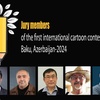
The First Cartoon Contest in Azerbaijan: A Milest…
- NEWS
- Fri, 6 Dec 2024 14:36:13 +0330
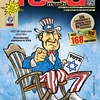
humor magazine "fenamizah" has been published
- NEWS
- Sat, 26 Oct 2024 11:19:07 +0330
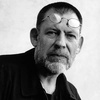
Swedish Cartoonist Riber Hansonn Passes Away
- NEWS
- Fri, 25 Oct 2024 11:29:33 +0330
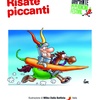
postcard of the 31st Diamond Pepper Festival
- NEWS
- Sat, 9 Sep 2023 13:54:20 +0330

Anyone over 16 -and a little crazy- can apply
- NEWS
- Sat, 9 Sep 2023 13:12:00 +0330
© Copyright Irancartoon - Cartoon & Caricature Information Center.


